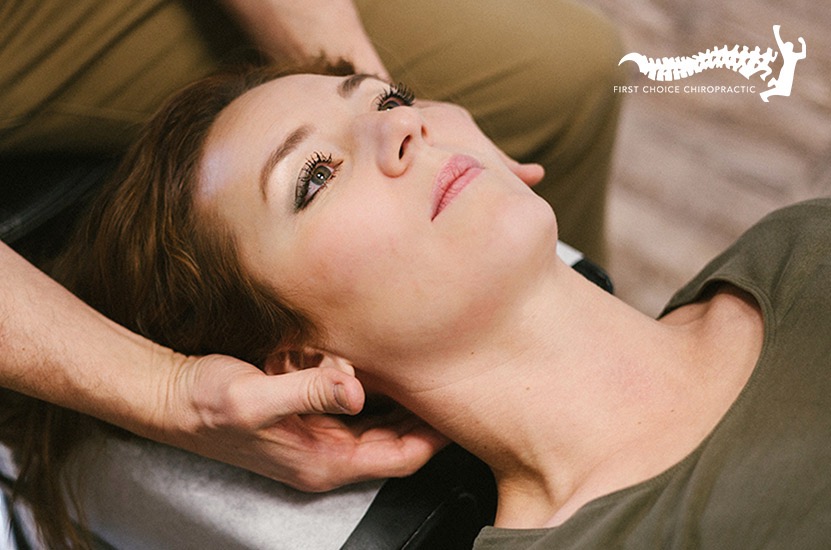In today’s fast-paced world, managing stress and anxiety has become a crucial aspect of maintaining overall well-being. Whether it’s work-related pressures, personal challenges, or simply the hustle and bustle of daily life, finding effective strategies to cope with stress and anxiety is essential. Here are some general tips to help you manage these common issues, including how chiropractic care and treatment may assist with reducing stress and anxiety.
1. Prioritise Self-Care

One of the most important steps in managing stress and anxiety is to prioritise self-care. This means taking time out of your busy schedule to focus on activities that rejuvenate and relax you. Whether it’s reading a good book, taking a long bath, or spending time with loved ones, self-care helps to recharge your mental and emotional batteries.
2. Regular Exercise
Physical activity is a proven stress-buster. Engaging in regular exercise releases endorphins, the body’s natural mood elevators, which can significantly reduce stress and anxiety. Whether it’s a brisk walk, a yoga session, or a workout at the gym, find an exercise routine that you enjoy and stick with it. Not only will it improve your physical health, but it will also enhance your mental well-being.
3. Healthy Eating Habits

Nutrition plays a vital role in how our bodies handle stress. Eating a balanced diet rich in fruits, vegetables, lean proteins and whole grains can provide the necessary nutrients to support your body’s stress response. Avoid excessive caffeine and sugar, as these can exacerbate anxiety symptoms. Instead, opt for foods that are rich in omega-3 fatty acids, such as salmon and walnuts, which have been shown to have a calming effect on the mind.
4. Mindfulness And Meditation
Practising mindfulness and meditation can help you stay grounded in the present moment, reducing feelings of stress and anxiety. These practices encourage a state of calm and focus, allowing you to respond to stressors more effectively. Simple techniques such as deep breathing exercises, progressive muscle relaxation, or guided imagery can make a significant difference in your stress levels.
5. Adequate Sleep

Quality sleep is crucial for managing stress and anxiety. Aim for 7-9 hours of uninterrupted sleep each night to give your body the rest it needs to recover and function optimally. Establishing a regular sleep routine, creating a comfortable sleep environment and avoiding screens before bedtime can help improve your sleep quality.
6. Social Support
Connecting with friends and family can provide a valuable support system when dealing with stress and anxiety. Talking about your feelings and experiences with someone you trust can help you gain perspective and feel less isolated. Don’t hesitate to seek professional support from a therapist or counsellor if needed.
7. Time Management

Effective time management can reduce the overwhelming feeling of having too much on your plate. Break down tasks into manageable chunks, set realistic deadlines and prioritise activities that are most important. Using tools such as planners or digital calendars can help you stay organised and on track.
8. Engage In Hobbies
Engaging in hobbies and activities that you enjoy can provide a much-needed break from stressors. Whether it’s painting, gardening, playing a musical instrument, or any other hobby, these activities can provide a sense of accomplishment and relaxation.
9. Limit Alcohol And Tobacco

While some people turn to alcohol or tobacco as a way to cope with stress, these substances can actually increase anxiety over time. Limiting or avoiding alcohol and tobacco can improve your overall health and reduce stress levels.
10. Consider Chiropractic Treatment
Chiropractic treatment is another method for managing stress and anxiety. Regular chiropractic adjustments may help reduce tension in the body, improve circulation and promote overall wellness. When your spine is properly aligned, your nervous system functions more efficiently, which may help reduce the physical effects of stress.
Chiropractors are trained to identify and treat misalignments in the spine, known as subluxations. These subluxations may cause physical discomfort and interfere with the body’s ability to manage stress effectively. By addressing these misalignments, chiropractic treatment may help alleviate pain, improve posture and enhance the body’s natural ability to cope with stress.
Moreover, chiropractic care may stimulate the release of endorphins, the body’s natural painkillers and mood enhancers. This may lead to a reduction in anxiety symptoms and an overall feeling of well-being. Many patients report feeling more relaxed and less stressed after a chiropractic session.
Incorporating chiropractic treatment into your stress management routine may provide both immediate relief and long-term benefits. It’s a holistic approach that addresses the root causes of stress and anxiety, rather than just masking the symptoms.
A Holistic Approach To Reducing Stress And Anxiety

Managing stress and anxiety requires a multifaceted approach that includes self-care, regular exercise, healthy eating, mindfulness, adequate sleep, social support, time management, engaging in hobbies, limiting harmful substances and considering chiropractic treatment. Incorporating these strategies into your daily routine, may potentially reduce your stress levels and improve your overall quality of life.
Invest in your health and well-being with holistic Chiropractic treatment. Speak to the team at First Choice Chiropractic about how Chiropractic care and treatment may ease tension and assist with reducing stress and anxiety – leading to overall wellbeing. Book an appointment today.







